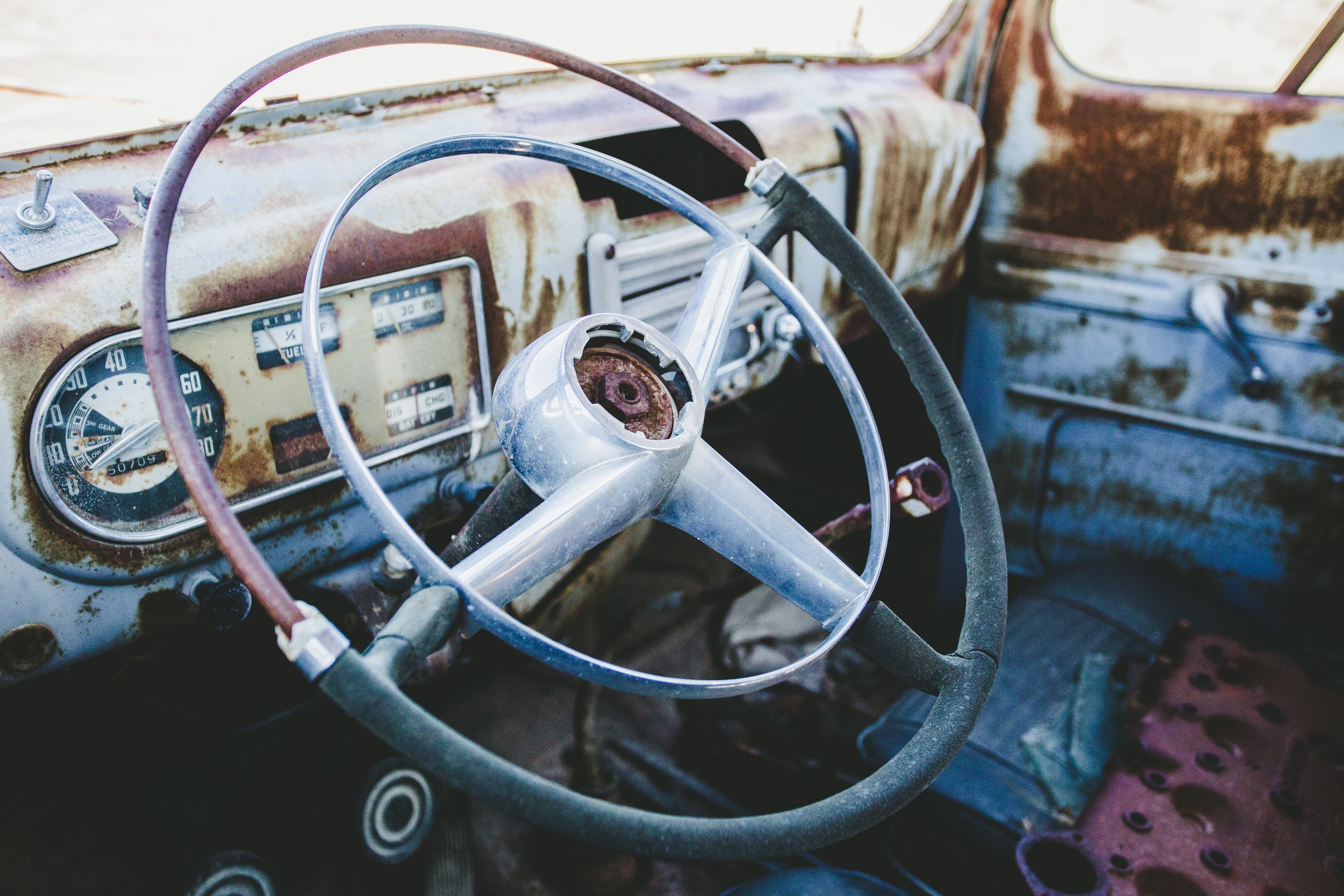You watched the wrong show this summer.

The month of August saw my Facebook feed light up with praise for the Duffer Brothers' supernatural throwback series, Stranger Things. Daily, entries would abound from friends begging the world to catch up on what they had just witnessed: an 8 episode romp through the '80's with a charming crew of middle schoolers mourning the loss of their 4th musketeer, then drawn into an adventure that could lead to his eventual return. It's a nostalgia play, a wonderfully executed homage (save for Winona Ryder's one-note performance) to the films of our Gen X youth like Stand By Me, The Goonies and ET. It's fun because it harkens back not just to the movies we grew up on, but because it taps into the shared collective experience of people like myself - white suburban kids who, on occasion, dared to explore the out-of-bounds fringes of our neighborhoods, often on two wheels. Stranger Things is an edge-of-your-seat time machine for a certain set of the American populous. But after watching Baz Luhrmann's The Get Down, it's evident that though Stranger Things may not be inferior, it's definitely less relevant.
Set in The Bronx of 1977, The Get Down tracks a cadre of neighborhood kids confronted not just with the challenges of self-discovery, but the entire sociological minefield of growing up in a disadvantaged urban environment of the 1970's. Poverty, drugs and violence threaten around every neighborhood street corner, each structure in some varied stage of ruin. The Bronx hasn't just been left behind. It seems to have been forgotten entirely.
Not unlike in Stranger Things, the objective for our heroes is survival. Our characters are haunted by forces they don't entirely understand, machinations and villains that appear sinister enough on the surface but are all the more tempestuous once fully exposed. The difference is that in The Get Down, the enemy is relatable and, with some historical context, far more haunting than any other-worldly flesh-eating demon could ever be. For the characters of Stranger Things, the objective is to restore the lives they know to the status quo. For those in The Get Down, it's to get out!
There is no shortage of parallels between Stranger Things and The Get Down. Across both shows the kids hold focus and their performances range from captivating to inspiring. Every character is on a quest. To that end they draw on the limited arsenals they possess - their hobbies, interests and each other. The Stranger Things brood are Dungeons & Dragons and science fiction fanboys guided throughout their discovery of this wrinkle in time by all that their charming nerd-dom can inform. The Get Down crew draws on something a bit different: the local mystics, artists and musicians whom they may have never heard or seen firsthand, but who are every bit as supernatural to them as any creature cast by a twenty-sided die in a basement role play. The pathos and code of ethics contained in comic books and Kung Fu movies provide a framework for problem-solving and relating inter-personally.
The Stranger Things boys find their mentor in Mr. Clarke, their middle school Ham Radio sherpa and science teacher who helps piece together the puzzle, providing some reasoned foundation for any chance of finding their lost friend. Grandmaster Flash fills this role for his "Grasshoppers" in The Get Down, laying down the canon that all DJ's and MC's must follow in order to honor the art form and achieve success.
As an epic tale, The Get Down is sprawling. It is helmed by Baz Luhrmann after all, so it contains all of the stylistic melodrama and technicolor one would expect from the creator of Moulin Rouge and Gatsby. Cutting at a frenetic pace between grainy period stock footage and some overly saturated production design, The Get Down is not straight drama and not quite full-blown musical theater. It's lavish but remarkably tender. The series rewards a complete watch and the musical crescendo it achieves in its final episode is every bit as satisfying as the final bout in a (good) Rocky movie.
Luhrmann successfully empathizes with his characters while not overly fetishizing their culture. If I had apprehension going in it was the potential exploitation of a time and place some white dude from Australia could not be expected to fully understand. "Would this be a total f*&king embarrassment?", I wondered. In the end, you'd have to ask someone closer to the subject matter. If he had made the same film about punk rock in the '80's my takeaway might be completely different. That said, I'm completely on board.
Perhaps its greatest offering is that there is genuine joy in The Get Down. The original scored music and Ezekiel's rhymes aren't just perfunctory or adequate. They're genuinely good. Seeing the words flow from the mouths of these talented babes feels like a celebration of hope that is as needed today as it was when The Bronx was on fire during the birth of hip-hop. If we're going down the road of revisiting the glory days with some sort of twist, let's revel in the birth of something real that has stood the test of time. In this golden age of television where content is produced in such quantities that no one could ever consume it all, I'm drawn to an experiment that is equal parts social exploration and cultural celebration. Yes, it's an origin story for superheroes like Shaolin Fantastic, MC Books and Mylene Cruz, but more importantly, an origin story for the art of Rap Music itself.
It's not perfect and, in places, it's downright messy; like the 1996 flash forwards that open most episodes in which a grown-up MC re-sets the stage of where we left off the last time the credits rolled. "Hello... I'm binge-watching here. No need!" And yes, it's a fictionalization, a two dimensional reduction of the lives of the actual people that gave rise to record scratching and MC'ing. The Get Down will be too saccharine for some and too urban for others, and though its style will prove controversial, I contend its spirit is undeniable.
Maybe that's why I find The Get Down's absence from the social media discussion so glaring. Admittedly, my Facebook Friends list consists largely of a single demographic... college-educated white liberals. Is that why? Really, just asking. I feel what drew my friends to Stranger Things was what the Duffer Brothers did so well - tell the story of four relatable (i.e. white and "innocent") boys and one kick-ass heroine as they stormed the abandoned junkyards, forests and suspicious buildings of their home town in the face of unspeakable danger. We've all been there, sort of. The uninhabited or abandoned sites of our youth were rife with local lore, and therefore... D-A-N-G-E-R. In hindsight, we can be nostalgic about and drawn to our exploration of these dangerous places because, well, they weren't. The mystery is what made them tantalizing to our underdeveloped minds, not the sites themselves. The Get Down's turf is far more fraught. Bombed out buildings, clubs filled with gangsters and gang members, high rises run by corporate self-interest, the projects. These are truly scary places, and most of us (thank goodness) haven't had to see them firsthand. We certainly didn't as children. So could this explain the divide? The unfamiliarity?
Admittedly, not all entertainment is obligated to do more than merely "entertain". I wouldn't contend the Duffer Brothers have some moral or social obligation to create a Netflix limited series that addresses the ills that face an America constantly struggling to better itself. Stranger Things satisfies the popcorn consumer in so many of us and, by this standard, I have no shame in admitting that I too enjoyed the series. However, in a year when the fatal shootings of black men by police in the US is garnering such attention, when a presidential candidate of a major political party is espousing rhetoric along racial lines which is both divisive and dangerous, when the Motion Picture Academy is forced to confront its own lack of diversity, when professional athletes (at their own peril) kneel to defy the very fans who support them in order to give voice to others who have no such platform, when Chicago is tearing itself apart with gun violence, why isn't 2016 the year of The Get Down? If under the pressure cooker conditions of New York City in the late '70's a form of expression could manifest itself into a pop culture phenomenon traveling far afield from the institutional high rises of failed social programs, isn't it invigorating to consider what form of expression will come out of THIS time whether or not we agree with every method of protest? The Get Down is relevant because for millions of Americans The Bronx of 1977 is today. If together we can enjoy the underdog story of a group of kids from the ghetto working to reach their potential, then maybe we can begin to understand what it will take for all of us to get there together.
All this is to say -- I'm on board with The Get Down. Stranger Things ain't exactly "the wackness" but it's definitely left looking a little pale in comparison.
--andy





